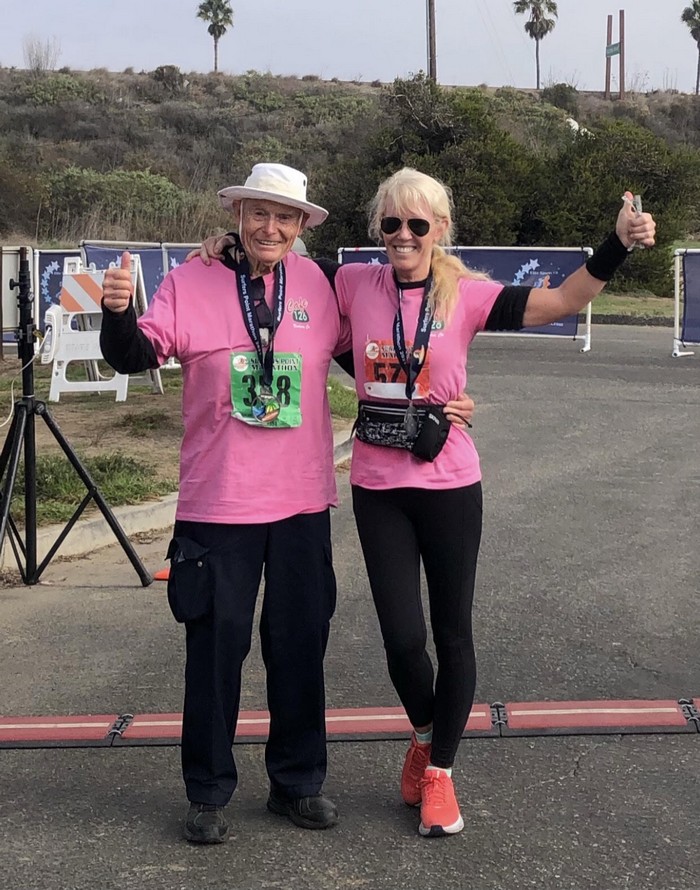 ∙ SPAN Thrift Store is now open to the public and looking for donations of adult clothing, household items and tools if you’ve got items you no longer use.
∙ SPAN Thrift Store is now open to the public and looking for donations of adult clothing, household items and tools if you’ve got items you no longer use.
SPAN Thrift Store regularly provides $10 spays and neuters for low income households with cats and dogs. Two upcoming clinics are: Tuesday, November 23rd at the Albert H. Soliz Library – El Rio, 2820 Jourdan St., Oxnard, 93036, and a second one on Tuesday, December 7th at Shiells Park, in the parking lot, located at 649 C St., Fillmore, 93015. Please call to schedule an appointment (805) 584-3823.
∙ Of all the cute things dogs do, cocking their head to one side while they look at you may be the most endearing. Yet surprisingly little research has looked into why they do it. Now, a new study of “gifted” canines—those capable of quickly memorizing multiple toy names—shows they often tilt their heads before correctly retrieving a specific toy. That suggests the behavior might be a sign of concentration and recall in our canine pals, the team suggests.
The researchers stumbled upon their find by chance while conducting a study of “gifted word learner” dogs. Most dogs can’t memorize the names of even two toys, but these talented pups, all border collies, could recall and retrieve at least 10 toys they had been taught the names of. One overachiever named Whisky correctly retrieved 54 out of 59 toys he had learned to identify.
Over the course of several months, the researchers tested the dogs’ abilities to learn and recall labels for toys, comparing their skills with those of 33 “typical” dogs. Owners placed toys in another room and asked for them by name. Only the seven gifted dogs were able to rapidly learn and remember names. But these dogs shared something else in common: the head tilt.
The pattern was too consistent to be pure coincidence, says Andrea Sommese, an animal behavior researcher at Eötvös Loránd University who led the study. “So, we decided to dig into it.”
A quick internet search turned up plenty of speculative results positing that dogs tilt their heads to hear better, to listen for specific words or tones, or to see past their snouts. Sommese found one poster hypothesizing that shelter dogs do it more often because they know on some level that humans find it irresistible.
The scientific literature was much more sparse. A search for previous studies on head tilting yielded surprisingly few results. There were some veterinary papers about the practice as a symptom of certain health problems, Sommese says, but nothing about the quizzical behavior familiar to dog owners. That led researchers back to their own data to look for clues.
The scientists found that when asked to retrieve a toy gifted dogs cocked their heads 43% of them time over dozens of trials, compared with just 2% of the time in typical dogs, they report this week in Animal Cognition. (Although gifted dogs tilted their heads much more often, they were just as likely to retrieve the correct toy regardless of whether they made the motion.) The animals even had a favored side, just like humans favor their left or right hand. This was consistent over months of recordings, regardless of where the owner was standing in relation to the dog. “If a dog was a left tilter, it would stay a left tilter,” Sommese says.
All of the border collies in the study were familiar with the words being spoken, he notes, but only the gifted dogs who had correctly attached a meaning to each word consistently exhibited the tilting behavior. That means head tilting isn’t just a sign of familiarity with particular sounds, Sommese argues. If it were, all 40 dogs would be equally likely to do it. The team thinks it could be linked to mental processing—a sign of high attentiveness or concentration in the gifted dogs. The dogs might be cross-referencing the command with their visual memories of the toys, for instance.
Monique Udell, a human-animal interaction researcher at Oregon State University, Corvallis, has never seen head tilting featured in a study like this before. She cautions that these observations are preliminary, but says she thinks they could provide an exciting new direction for research on canine cognition. “The next step is asking more questions to get at what the head tilt really means,” Udell says. “Can we use head tilting to predict word-learning aptitude, or attention, or memory?”
Sommese hopes to follow up on this study by figuring out what sorts of sounds might be similarly meaningful to the nongifted dogs, to elicit the same behavior. Until then, dog owners will have to be content knowing that when a pooch tilts its head, it’s probably just trying its best to understand what you’re doing.
∙Through grocery store tabloids and TV commercials inundating us with new fad diets it seems that we, as humans, are constantly focusing on our weight. But what about when it comes to where our feline friends fall on the scales?
Dr. Ashley Navarrette, a clinical assistant professor at the Texas A&M College of Veterinary Medicine & Biomedical Sciences, offers insight on how to manage your cat’s weight.
“When evaluating body condition on a cat, veterinarians look and feel to determine the fat coverage on a patient and assign them a number on a scale –generally 1-9 –,” Navarrette said. “An ideal body condition ranges from a BCS 4-6 with a score of 5 being ideal. We start to get concerned when cats are a BCS 7 and above, which is where we start to label a patient as overweight and progressing toward obese (8 and 9).”
“Thankfully, most people can weigh their cats at home using the trick of weighing themselves first, weighing themselves and the cat, and then doing some simple math,” she said. “I recommend owners routinely check their cat’s weight at least once a month to catch any upward or downward trends early.”
Because patients typically only see their veterinarian one to two times a year, Navarrette says “it is heavily (no pun intended) the responsibility of the owner to keep their pet at an appropriate weight.”
Some owners may believe that a couple of extra pounds isn’t a big deal; however, Navarrette warns that that “fat and happy” does not exist. “While your pet may seem content being overweight, their body systems are being affect by the excess fat tissue and even so much as a pound overweight can make a big difference to a cat,” she said. “Cats that are overweight and obese tend to be less social and less active. We also tend to see decreased grooming because they simply cannot reach due to their size.”
In some cases, your veterinarian may also suggest transitioning your cat to an over-the-counter or a prescription weight-loss diet; these foods are traditionally higher in protein and fiber than other cat foods.
However, transitioning from one food to another can be a more difficult task than it sounds.
“Cats like what they like and hate what they hate” Navarrette said. “Often cats become accustomed to a particular diet, and you may have to trial various diets before your cat accepts one.”
Finally, when managing your cat’s weight, integrating exercise into their everyday life through indoor cat trees, interactive toys or cat perches can stimulate their metabolism.
“As with any weight loss journey, whether that be feline or other pets, this is a marathon and not a sprint. Weight loss will take time; patience and consistency are key to this process,” Navarrette said. “Check-ups may need to be as frequent as every six to eight weeks to monitor progress and make necessary modifications.”




















